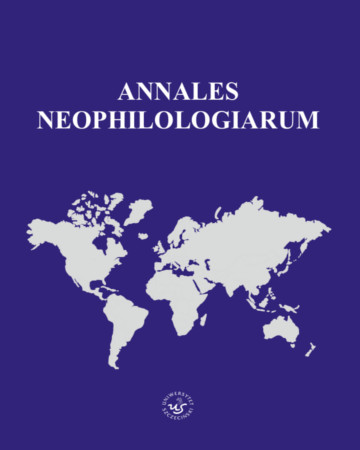




| Authors: |
Edyta
Bocian
Uniwersytet Szczeciński, Wydział Filologiczny |
| Keywords: | language of journalism economy conceptualization metaphor |
| Data publikacji całości: | 2015 |
| Page range: | 20 (5-24) |
| 1. | Black M., 1983, «Metafore», [in:] M. Black, 1983, Modelli, archetipi, metafore, Pratiche, Parma, 42–66. |
| 2. | Black M., 1993, More about metaphor, [in:] A. Ortony (a cura di), 1993, Metaphor and thought, Cambridge, Cambridge University Press, 19–41. |
| 3. | Briosi S., 1990, Il senso della metafora, Napoli, Liguori Editore. |
| 4. | Danesi M., 2001, Lingua, metafora, concetto. Vico e la linguistica cognitiva, Bari, Edizioni del Sud. |
| 5. | Eco U., 1980, «Metafora», voce [in:] Enciclopedia Einaudi, vol. IX, Torino, Einaudi, 191–236. |
| 6. | Jäkel O., 2003, Metafora w abstrakcyjnych domenach dyskursu: kognitywno-lingwistyczna analiza metaforycznych modeli aktywności umysłowej, gospodarki i nauki, Universitas, Kraków. |
| 7. | Johnson M., 1987, The body in the mind: the bodily basis of meaning, imagination, and reason, The University of Chicago Press, Chicago and London. |
| 8. | Jonasson K., 1994, Le nom propre. Constructions et interprétations. A. Michel, Paris. |
| 9. | Krzeszowski T., 1998, «Aksjologiczne aspekty metafor», [in:] W. Kubiński, R. Kalisz, E. Modrzejewska (a cura di), 1998, Językoznawstwo kognitywne. Wybór tekstów, Wydawnictwo Uniwersytetu Gdańskiego, Gdańsk, 80–103. |
| 10. | Lakoff G., Johnson M., 1988, Metafory w naszym życiu, PIW, Warszawa. |
| 11. | Lakoff G., Johnson M., 1998, Elementi di linguistica cognitiva, Quattro Venti, Urbino. |
| 12. | Lakoff G., 1987, Women, fire and dangerous things: what categories reveal about the mind, The University of Chicago Press, Chicago and London. |
| 13. | Lakoff G., 1998, «Teoria della metafora», [in:] G. Lakoff, M. Johnson, 1998, 41–110. |
| 14. | Parmegiani M., 1992, Rassegna critica delle teorie tradizionali della metafora e delle connesse problematiche linguistiche, [in:] M.A. Pinto, M. Danesi a cura di, 1992, La metafora fra processi cognitivi e processi comunicativi, Bulzoni, Roma, 19–26. |
| 15. | Perelman Ch., Olbrechts-Tyteca L., 1966, Trattato dell’argomentazione: la nuova retorica, Einaudi, Torino. |
| 16. | Pirazzini D., 1997, Cinque miti della metafora nella Übersetzungswissenschaft. Problemi di traduzione delle immagini figurate nella coppia di lingue: Tedesco (Lingua di Partenza) – Italiano (Lingua d’arrivo), Peter Lang, Europäischer Verlag. |
| 17. | Richards I.A., 1967, La filosofia della retorica, Feltrinelli, Milano. |
| 18. | Ricoeur P., 1986, La metafora viva: dalla retorica alla poetica: per un linguaggio della rivelazione, Jaca Book, Milano. |
| 19. | Rosch E., 1999, «Principles of Categorization», [in:] E. Margolis, S. Laurence, 1999, Concepts: Core Readings, MIT Press, Cambridge, 189–206. |